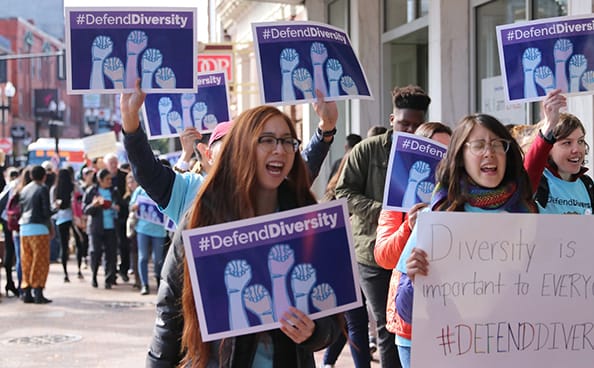
Prestigious Ivy League college Harvard University won its case to continue to enforce affirmative action in its admissions process. The U.S. Court of Appeals in Boston made the ruling this past week that would allow Harvard to select its students for admission based on their race as long as certain guidelines and protocols were followed, to the dismal of activist group Students for Fair Admissions (SFFA).
The conservative, non-profit group based out of Virginia claimed that the university was discriminating against Asian American students and accepting other racial groups despite Asian American applicants having higher test scores and GPAs. The group is planning on asking for a reversal of the decision through the U.S. Supreme Court.
“This lawsuit is now on track to go up to the U.S. Supreme Court where we will ask the justices to end these unfair and unconstitutional race-based admissions policies at Harvard and all colleges and universities,” Edward Blum, the president of SFFA, said in a statement.
SFFA has targeted other universities with anti-affirmative action lawsuits, including the University of North Carolina and University of Texas. On its website, the organization states that it is a “group of more than 20,000 students, parents, and others who believe that racial classifications and preferences in college admissions are unfair, unnecessary, and unconstitutional.” The group seeks to “restore the original principles of our nation’s civil rights movement.”
The group’s current objective is to advocate for Asian American students. However, some question whether this group is truly a representation of people of color or the group is using alleged discrimination against Asian American students as a facade.
The court revealed that some of the reasons why the ruling was not in favor of SFFA was because the group had limited statistical evidence to back up its claims and could not present actual Asian American students with a grievance or complaint claiming racial discrimination from the higher education institution.
Back in 2019, the Asian American Legal Defense and Education Fund (AALDEF), along with 32 Asian American groups requested that the courts reject claims from SFFA that Harvard was being discriminative specifically toward Asian American students in a post-trial amicus brief.
“Significantly, not a single Asian American applicant offered testimony claiming to be a victim of discrimination,” Margaret Fung, AALDEF executive director, said. “Harvard’s individualized admissions process, which takes race into account, actually helps to dispel the harmful ‘model minority’ myth by recognizing the vast ethnic, language, and socioeconomic diversity within the Asian American community.”
The ability to select college applicants based on a student’s race has been implemented for more than 40 years as law by the Supreme Court, as long as there is a compelling interest toward achieving an approved goal. In Harvard’s case, the Ivy League has enlisted affirmative action to diversify its student body.
“The consideration of race, alongside many other factors, helps us achieve our goal of creating a student body that enriches the education of every student,” Harvard President Lawrence Bacow said.
Black, Latino, and Hispanic students have been historically hindered from accessing a quality education and other resources due to the racially discriminative constructs of the U.S. that include a cycle of generational poverty stemming from low employment rates, lack of financial literacy and legacy (family trusts, life insurance, inheritances etc.) and low business ownership.
As the communities of Chicago, Detroit, New Orleans, New York and Oakland, to name a few, have proven is that it is more than difficult to have the highest assessment test scores and GPAs when your main concern is keeping a roof over your head, securing your next meal, and dodging the violence that comes along with disenfranchised and forgotten communities.
That is why admission committees across academic institutions enlist a process that considers not only assessment and GPA scores, but also community involvement, sports, affiliations, and examples of overcoming diversity or accomplishing goals. These types of processes result in the admission of well-rounded individuals that can contribute to the enrichment of a student body. The court agrees with the university’s stance.
“Enabling students to understand, relate to, and learn from people of different backgrounds is one of the main goals of Harvard’s race-conscious admissions program,” a statement in the ruling said. “Harvard has demonstrated that it values all types of diversity, not just racial diversity. Harvard’s use of race in admissions is contextual and it does not consider race exclusively.”
Diversity has proven to be beneficial to both academic institutions and corporate America. The appeal of a racially diverse company, product or candidate of any position proves to ultimately be an effective decision that improves the bottomline. On average, Harvard University accepts about 1,600 students from a pool of 35,000 applicants each year.



